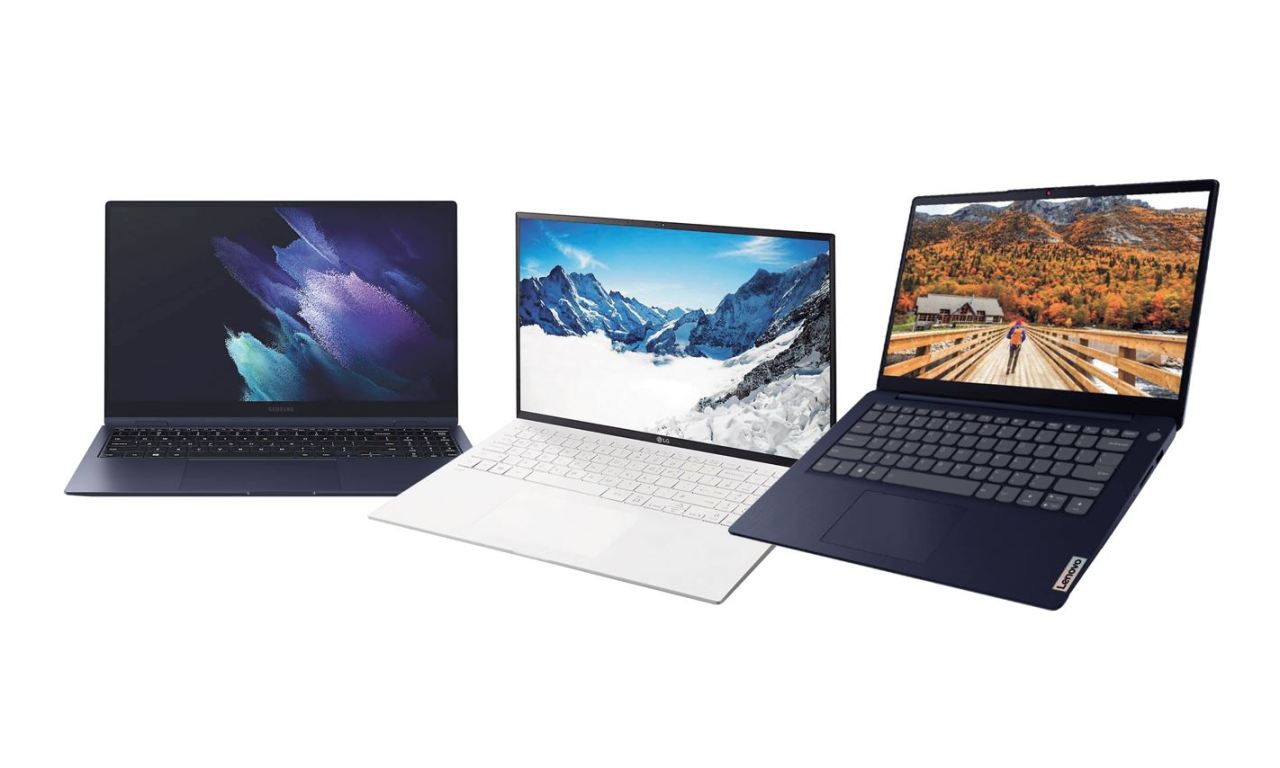Korea’s PC market expands but growth pace cools in Q2
Strong demand for laptops continues amid COVID-19 pandemic; outlook uncertain in second half of 2021
By Yang Sung-jinPublished : Aug. 11, 2021 - 18:13

South Korea’s personal computer market continued to expand in the April-June period of 2021, helped by a solid demand due to the prolonged pandemic, but there were signs that the growth rate would taper off, latest industry data showed.
Domestic PC shipments came in at 1.5 million units in the second quarter, up 3.1 percent from a year ago, according to the data from market researcher IDC Korea.
The second-quarter PC shipment volume marked a sharp drop from 1.89 million units in the January-March period, when the year-on-year growth rate surpassed 30 percent, reflecting an explosive demand for PCs despite global component shortages as more people had to work and study from home.
Desktop shipments shrank 7.3 percent on-year in the second quarter, but the total shipment volume remained in a positive territory thanks to laptop shipments that surged 11.8 percent during the period, according to IDC Korea.
Korea’s figures were in line with the global PC shipments that slowed down from 55.7 percent in the first quarter to 13.4 percent in the second quarter.
“The demand for PCs in the second quarter in Korea was limited largely because of more orders to buy or replace PCs to prepare for online classes in the first quarter,” IDC Korea said in a press release.
PC shipments for education purposes continued to grow in the second quarter, up 32.2 percent from a year earlier, as schools across the nation carried out the last phase of PC replacement programs for teachers. The programs, started in the second half of 2020, were designed to replace around 200,000 units.
The enterprise PC segment also rose 12.3 percent on-year in the second quarter. IDC Korea said the replacement demand began to expand from large firms to small- and medium-sized enterprises, which prompted PC manufacturers to beef up channel partnerships and introduce new models that aim to reduce cost and enhance productivity.
By sector, PC shipments for home use edged down 0.7 percent to just over 800,000 units in the second quarter from a year earlier. The share of PC shipments for the home accounted for 68.5 percent of the total.
As people stayed home for longer hours to follow strict social distancing rules, consumers opted for ultra-slim models whose widths range between 15mm and 21mm, a category that is thought to provide powerful performance for a relatively affordable price.
To cut spending, consumers favored mainstream models with affordable price tags rather than pricey premium laptops with cutting-edge functions, IDC Korea said.
As for sales of laptops in the April-June period, Samsung Electronics remained top in the ranking by selling nearly 300,000 units, followed by LG Electronics with 192,000 units, Leonovo Korea with 121,000 units, Apple with 66,000 units, HP Korea with 63,000 units and Asus Korea with 54,000 units.
The combined share of foreign brands hit 42 percent in the second quarter, up from 33 percent in the previous quarter.
Lenovo Korea extended its leading position among foreign PC brands here, thanks to a diverse lineup that ranges from low-priced models to premium gaming laptops. Other foreign brands also expanded their share, partly benefiting from the premium-centered strategies of Samsung and LG.
Both Samsung and LG sold more laptops, but their combined share shrank from 69 percent in the first quarter to 55 percent in the second quarter as the increase in their sales was outpaced by the faster growth of the overall market, largely driven by cheaper models from foreign brands.
The domestic PC market at large is in a turbulent transition period affected by the pandemic, the rapid adoption of cloud computing and the growing popularity of alternative devices like tablets.
Kwon Sang-jun, a director of IDC Korea, said, “The transition to the cloud computing environment stresses PC’s role as collaboration tool, and new challenges are emerging in the market, such as high-performance tablet devices that blur the boundaries with laptops.”
The PC market outlook for the second half is uncertain as a record surge in new infections led by the delta variant in recent weeks is disrupting the much-awaited post-pandemic return to work and school.
Consumer demand for PCs is forecast to weaken if people shift their spending priorities away from big-ticket items after a yearlong buying spree of PCs for remote work and learning.








![[KH Explains] How should Korea adjust its trade defenses against Chinese EVs?](http://res.heraldm.com/phpwas/restmb_idxmake.php?idx=644&simg=/content/image/2024/04/15/20240415050562_0.jpg&u=20240415144419)











![[Today’s K-pop] Stray Kids to return soon: report](http://res.heraldm.com/phpwas/restmb_idxmake.php?idx=642&simg=/content/image/2024/04/16/20240416050713_0.jpg&u=)